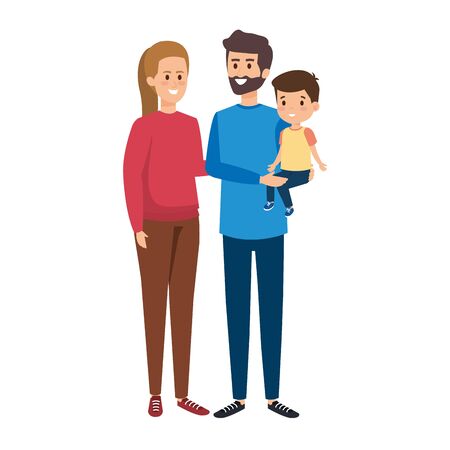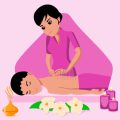Understanding Postnatal Depression in the UK
Postnatal depression (PND) is something a lot of new parents hear about, but many of us don’t fully understand what it really means until we’re in the thick of it. In the UK, PND affects more mums than you might think – around 1 in 10 women experience some form of postnatal depression after giving birth. It’s not just about feeling a bit down or tired; it’s a serious mental health condition that can impact daily life, relationships, and even bonding with the baby.
For partners, especially dads, knowing what PND looks like is absolutely crucial. We might notice that our partner seems withdrawn, overwhelmed, tearful, or unable to enjoy things she used to love. Sometimes there’s guilt, anger, or trouble sleeping (and not just because of night feeds!). Recognising these signs early on makes a massive difference in how quickly help can be found and how well your family gets through this together.
Here’s a quick overview of some common symptoms to look out for:
| Common Symptoms of Postnatal Depression | What Partners Might Notice |
|---|---|
| Persistent sadness or low mood | Your partner may seem tearful or down most days |
| Lack of energy and feeling tired all the time | Struggling to get through the day despite getting rest |
| Loss of interest in usual activities | No longer wanting to go out or see friends/family |
| Trouble sleeping (even when baby sleeps) | Restless at night or unable to nap during the day |
| Irritability or anger | Short-tempered over small things, snapping unexpectedly |
| Feelings of guilt or worthlessness | Often blaming herself or feeling she’s not a good mum |
| Difficulty bonding with the baby | Avoiding holding or caring for the baby when possible |
It’s important for partners to remember that PND is not anyone’s fault – it’s a medical condition that can happen to any mum, regardless of background or circumstances. Being aware and supportive is one of the best things you can do as a dad or partner on this parenting journey.
2. Listening and Open Communication
As a new dad myself, I quickly learnt that sometimes the best thing you can do for your partner is to simply listen. Postnatal depression isn’t something we can “fix” overnight, but by being present and showing genuine interest in how our partner is feeling, we make a real difference. In the UK, where we’re sometimes told to “keep calm and carry on,” it’s especially important for dads and partners to break that mould and create a safe space at home for open chats—whether that’s over a cuppa or during a pram walk around the park.
Ways to Actively Listen
| Active Listening Tip | How It Helps |
|---|---|
| Give your full attention (put your phone down!) | Makes your partner feel valued and heard |
| Use gentle prompts (like “Tell me more”) | Encourages sharing without pressure |
| Avoid offering solutions too quickly | Shows you respect their feelings, not just the problem |
Encouraging Open Conversations
It’s easy to bottle things up, especially with all the changes a new baby brings. But honest conversations are key. Ask open questions—things like, “How are you feeling today?” or “Is there anything on your mind?” Sometimes just knowing someone wants to listen makes all the difference. Remember, it doesn’t have to be a big sit-down talk; even little check-ins while doing chores together can help.
Providing Emotional Reassurance Without Judgement
Your partner may worry about being judged or misunderstood. Be patient—let them know it’s okay to feel overwhelmed. Phrases like “You’re not alone” or “It’s alright to feel this way” go a long way. Avoid dismissing their feelings or comparing experiences (“Other mums seem fine”). Instead, reassure them that their emotions are valid and that you’re in this together as a team.

3. Sharing the Load at Home
As a first-time dad, I quickly realised that supporting my partner through postnatal depression wasn’t just about emotional reassurance—it was about mucking in with the day-to-day jobs too. In the UK, we love a good team effort, and when it comes to parenting, teamwork really does make all the difference. Mums shouldn’t be left carrying everything on their shoulders. Sharing household chores and baby care tasks isn’t just helpful; it’s essential for everyone’s wellbeing.
Practical Ways to Share Household and Baby Tasks
It might sound obvious, but the little things add up. Whether it’s tackling the washing up after tea or getting stuck into nappy changes, every bit of help counts. Here are some tried-and-tested tips from my own experience:
- Night Feeds: If your baby is bottle-fed, take turns doing night feeds. Even if breastfeeding, you can handle nappy changes or settle the baby back to sleep.
- Nappy Duty: Don’t shy away from nappies—get stuck in and do your fair share. It gives Mum a breather and helps you bond with your little one.
- Housework: Split chores like laundry, cooking, and tidying up so Mum isn’t juggling it all. Even small jobs like making her a cuppa can lift her spirits.
- Admin & Appointments: Help book health visitor check-ups or keep track of baby milestones so she doesn’t have to remember everything.
A Simple Task-Sharing Plan
| Task | Who Can Do It? | How Often? |
|---|---|---|
| Night Feeds | Take turns (Dad/Partner & Mum) | Alternate nights or as needed |
| Nappy Changes | Dad/Partner & Mum share equally | Each change as needed |
| Laundry | Whoever has free hands! | Every other day or as needed |
| Cooking Meals | Dad/Partner or order takeaway for ease | Main meals daily |
| Tidying Up | Split between both adults | Quick tidy each evening |
| Bottle Sterilising/Prep | Dad/Partner & Mum share duties | Before each feed or nightly prep |
The British Perspective: Keep Calm and Carry On Together
I’ve found that sharing the load is very much in line with our British way—no fuss, just getting on with it together. Don’t wait to be asked; offer help before it’s needed. Check in regularly (“Shall I take over for a bit?”) and remember: you’re both learning as you go. By splitting these jobs, not only do you support your partner through postnatal depression, but you also build stronger family bonds—and maybe even enjoy a well-deserved biscuit break together once the baby’s down for a nap!
4. Encouraging Self-Care and Social Connection
As a new dad myself, I quickly realised that looking after a newborn is all-consuming for both parents, but especially for mums who might be struggling with postnatal depression. One of the most supportive things we can do as partners is to encourage mums to take time for themselves and reconnect with others. In the UK, were lucky to have lots of local resources and groups that help make this possible.
Making Time for Self-Care
Self-care doesnt have to mean an expensive spa day – sometimes its as simple as making sure mum has time for a hot cuppa, a shower without interruption, or even just ten minutes to herself. Partners can help by taking on baby duties for short periods, so mum can recharge. Ive found that even small gestures, like handling the night feed or changing nappies in the morning, give my partner valuable breathing space.
Ideas for Everyday Self-Care Support
| Self-Care Activity | How Partners Can Help |
|---|---|
| Enjoying a hot drink in peace | Take baby out for a walk or play in another room |
| Having a relaxing bath or shower | Watch baby while mum unwinds, light some candles if she likes! |
| Catching up on sleep | Handle early morning feeds or settle baby during naps |
| Pursuing hobbies (reading, crafts) | Schedule regular ‘mum time’ into your weekly routine |
The Importance of Social Connection
Mental health experts here in Britain often emphasise how important it is for new mums not to feel isolated. As partners, we can encourage mums to stay connected with friends and family – even if its just a quick natter on WhatsApp or popping round to see her mates. Getting involved in local mum-and-baby groups has been a real game-changer for us. Many libraries, churches, and community centres across the UK run these groups where mums (and sometimes dads) can meet others going through the same experiences.
Ways to Encourage Socialising Together
- Join a local mum-and-baby group: Offer to go along for the first session if she’s nervous, or take care of baby at home so she can go alone.
- Go for a walk in the park: Fresh air does wonders – try your nearest green space, like Hyde Park in London or your local Rec ground.
- Arrange visits: Invite close friends or family over for tea and biscuits when she feels up to it.
- Create low-pressure plans: Suggest short outings like grabbing a coffee at Costa or having lunch at a nearby café, keeping things relaxed and flexible.
Your Support Makes All the Difference
No two families are the same, but from my own experience, showing understanding and actively supporting self-care and social connection helps mums feel less alone during such a challenging period. It’s about being present and encouraging – those small actions really add up and can make all the difference as you navigate postnatal depression together.
5. Seeking Professional Help Together
As a new dad, I quickly realised that sometimes love and support at home just aren’t enough when postnatal depression rears its head. That’s where seeking professional help together really makes a difference. In the UK, we’re lucky to have a range of services available—and tackling this as a team can make all the difference for both parents’ wellbeing.
Where to Find Support in the UK
Here’s a quick overview of key resources available for families facing postnatal depression:
| Support Service | How They Can Help | How to Access |
|---|---|---|
| NHS (National Health Service) | Offers GP appointments, referrals to perinatal mental health teams, and counselling services. | Contact your local GP or visit NHS Mental Health. |
| Health Visitors | Provide regular check-ins, advice, and early intervention for both mums and dads struggling with mental health. | Your midwife or GP will usually introduce you after birth; you can also request extra visits if needed. |
| PANDAS Foundation | A UK charity offering helplines, email support, and local support groups specifically for postnatal mental health. | Call 0808 1961 776 or visit PANDAS Foundation. |
| Samaritans | 24/7 emotional support for anyone feeling overwhelmed or struggling to cope. | Call 116 123 free from any phone or visit Samaritans. |
The Benefits of Seeking Help Together
- No one feels alone: Going to appointments as a couple shows you’re in it together—no judgement, just teamwork.
- Better understanding: Partners learn about symptoms, treatment options, and what recovery might look like—making it easier to spot warning signs and offer the right kind of support at home.
- Shared responsibility: It takes the pressure off mum to “fix” things herself—dad or partner becomes an active part of the healing process too.
- Stronger bond: Facing challenges side by side can actually bring you closer as a couple and as new parents.
A Personal Note from My Own Experience
I remember feeling pretty helpless when my partner first started showing signs of postnatal depression. But making that first call to our GP together was a turning point. We got guidance from our health visitor, found out about local support groups, and most importantly—we stopped trying to battle it alone. It felt like a weight had lifted off both our shoulders. If you’re reading this as a dad or partner: don’t be afraid to reach out together. The help is there, and it’s okay not to have all the answers yourself.
6. Looking After Your Own Wellbeing
As a new dad or partner, it’s easy to focus all your energy on supporting your loved one through postnatal depression. But it’s just as important to keep an eye on your own mental health. Remember, you can’t pour from an empty cup – looking after yourself helps you be the best support possible for your partner and baby.
Why Self-Care Matters
The early days of parenthood in the UK can feel overwhelming: sleepless nights, endless nappy changes, and learning how to be there for someone experiencing postnatal depression. It’s completely normal to feel stressed, anxious, or even down at times. Checking in with yourself isn’t selfish; it’s necessary. If you notice signs like constant tiredness, irritability, withdrawing from mates or family, or losing interest in things you usually enjoy, it might be time to seek some help for yourself too.
Signs You Might Need Support
| Sign | What It Might Look Like |
|---|---|
| Poor sleep (even when baby sleeps) | Lying awake worrying or unable to relax |
| Low mood | Feeling flat, hopeless or tearful most days |
| Irritability | Snapping at partner or others over small things |
| Social withdrawal | Avoiding friends, family, or work events |
Where to Turn for Help in the UK
If you’re finding things tough, know that you’re not alone – lots of dads and partners go through this. Here are some options:
- Your GP: They can offer advice, signpost services or refer you for counselling.
- PANDAS Foundation: Support for dads and partners affected by perinatal mental health issues (www.pandasfoundation.org.uk).
- NHS Talking Therapies: Free local mental health support (search ‘NHS Talking Therapies’ online).
- Samaritans: For someone to talk to any time, day or night – call 116 123.
Don’t Forget Your Mates
A quick catch-up at the pub or a walk round the park with a mate can do wonders. British blokes aren’t always great at talking about feelings, but opening up – even just a little – can really lighten the load.
A Final Word
You don’t have to soldier on alone. Prioritising your own wellbeing is just as vital as supporting your partner. By reaching out when you need it, you set a brilliant example for your family and give everyone the best chance of thriving together.


